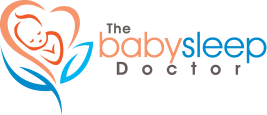This blog responds to a concern expressed on our Facebook Page in relation to starting solids.
To Whitney Grace
Thank you for writing on my page on the issue of solids. Just before I respond, I suggest you will find extensive “disclosure” of my methods throughout my website (please see the Information and Blog sections) – I am very happy to share information on such important issues.
So let me start with the basics which are well established.
- The best evidence to-date states that allergenic proteins and in particular peanut should be started by 4-11 months.
- To do so decreases the risk of peanut allergy by about 70-86% for high and medium risk infants. Please see the LEAP study published in the New England Journal of Medicine in February 2015.
- Approximately 3% of Australian children have peanut allergy. This converts to approximately 9,000 children per annum who develop this important allergy per annum. In the large majority of these children it could have been avoided by earlier exposure to peanut protein.
The risks of starting solids early are not at all well established. The only evidence which I have been able to find relates to wheat protein which if offered too early (i.e. before about 4 months), is associated with an increased risk of coeliac disease. As a result, I do not introduce wheat protein before 16 weeks.
The solids which I introduce include potato, apple, pear and pumpkin. There is no suggestion in the literature that these food products cause any health issues in humans.
So if there is no risk to using these solids the focus then moves back to the issue of breast feeding exclusively. This is an area in which I have invested a huge endeavour to be on top of the evidence
Let me make this statement as it seems to get lost in people’s comments. Every breast feed has benefit for mother and child and I encourage mothers to beast feed for as long as they can or wish to. About 75% of my patients are breast feeding at 12 weeks.
My problem is with the advice that breast feeding should be exclusive.
This advice has its origins with the World Health Organisation and was developed primarily to decrease deaths from gastro in the third world. It has been widely promulgated in the West despite an absence of evidence of benefits of exclusivity. The field is awash with papers. At the time when I employed a scientist to review the literature there were more than 9,500 papers on breast feeding. By selective quoting it is possible to show anything. Increase eczema, decreased eczema, increased obesity, decreased obesity, increased asthma, decreased asthma. What is clear from our two-year full-time study of the literature is that the benefits of breast milk come from breast milk and not from it being exclusive. There is no robust evidence in the literature that exclusivity adds benefits above partial breast feeding. While I totally understand that you will disagree, I can assure you I have made a genuine and thorough effort to be aware of the literature in this field.
My regular experience as a father, grandfather and a doctor who has now seen more than 10,000 families face-to-face is that large numbers of babies benefit from solids by 8-12 weeks of age. Boys seem to want to start a little earlier and girls a bit later.
A major focus of my work is establishing excellent sleep for baby and parents. In my patients, starting solids in this age group proves to be very helpful in gaining a better night’s sleep. Well rested mothers provide high quality parenting.
So thanks again for your comments and I hope that this helps you see, at least, that my patient care advice is not taken lightly.
Best wishes
Dr Brian Symon
















